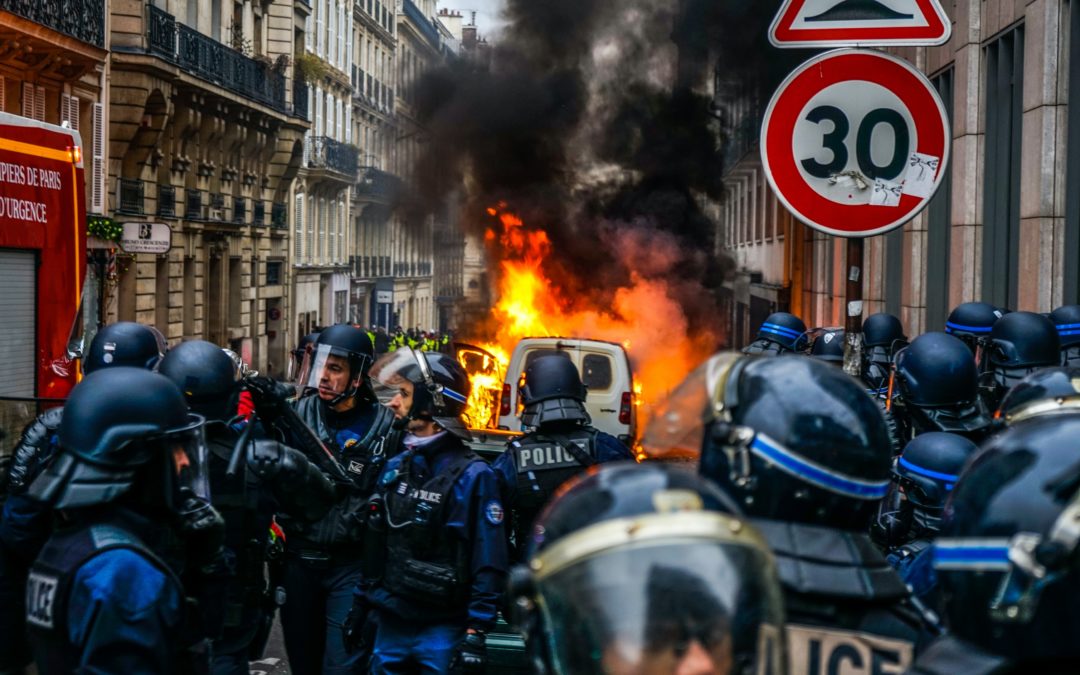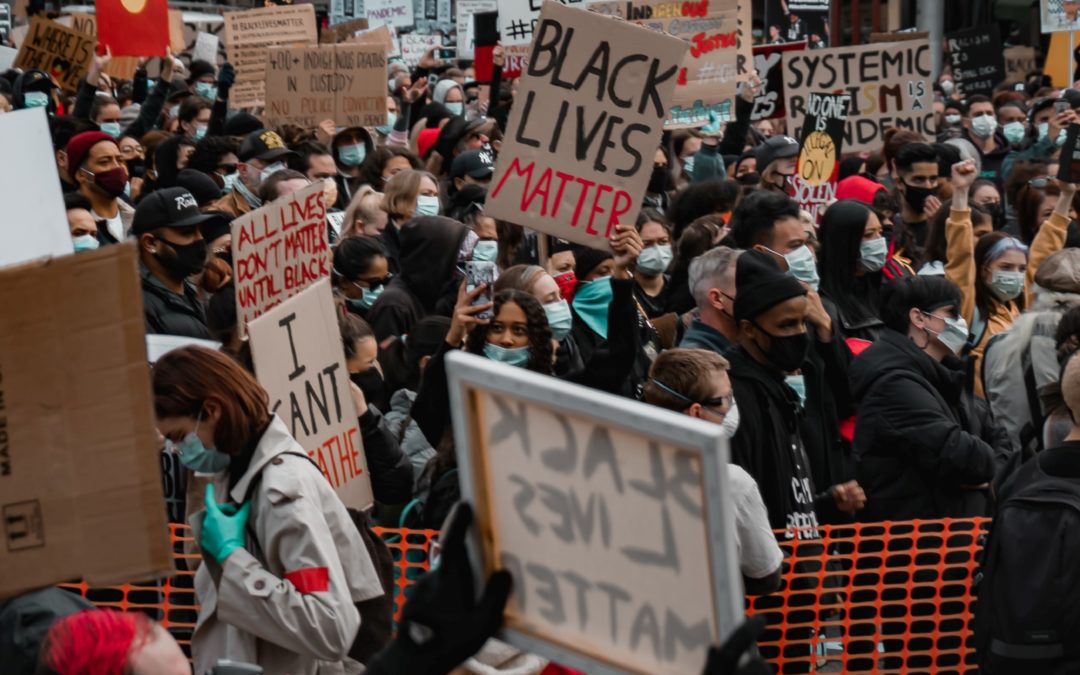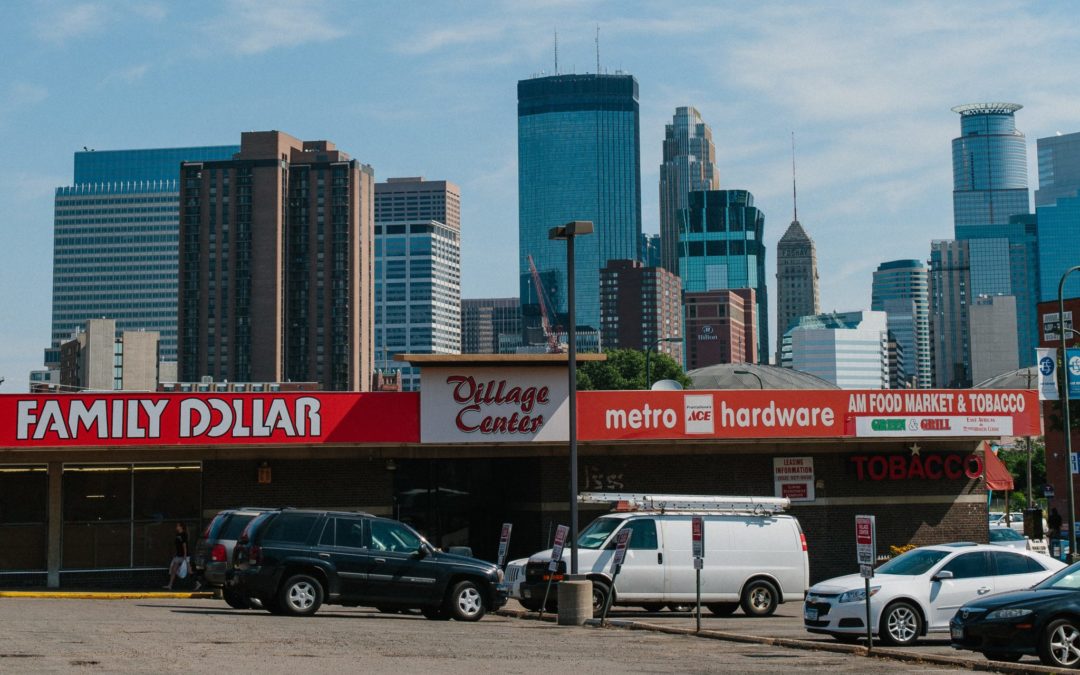
by Tanyette McCoy Davis | Mar 21, 2023 | Latest, Social Justice |
In response to the recent police brutality cases that have garnered national attention, California is proposing a new law that would allow victims of police brutality to receive compensation from the state. This proposition would create a fund to pay for damages suffered by victims of police misconduct, and would be funded by a surcharge on fines and bail schedules for criminal offenses.
This proposition is an important step in addressing the problem of police brutality, as it would provide some measure of justice for victims who have often been ignored or mistreated by the system. It is also a reminder that police officers are sworn to protect and serve the public, and when they violate that trust, they should be held accountable
One high-profile case that garnered national attention was the death of Oscar Grant. On New Year’s Day in 2009, Grant was fatally shot by a BART police officer while he was lying face down on a train platform. The officer claimed he mistook his gun for a Taser, but many felt that the shooting was unjustified.
The incident led to widespread protests and calls for reform. In response, the state legislature passed a law requiring all police agencies to report data on use of force incidents. However, this law was not enough to prevent further cases of police brutality from occurring.
In 2016, it was estimated that there were over 400 cases of excessive force by police officers in California. This number is likely higher, as many cases go unreported. Victims of police brutality often feel like they have no recourse and that their complaints will fall on deaf ears.
The proposed bill, AB 931, would allow people who have been victims of police brutality to seek compensation from the state. The bill would create a fund to pay for damages caused by police officers, and would also allow victims to file lawsuits against the state. The bill has been proposed in response to the death of George Floyd, who was killed by a Minneapolis police officer.
AB 931 could have a significant impact on police departments across California. If the bill becomes law, it is likely that more people will come forward with claims of police brutality. This could lead to increased scrutiny of police officers, and could result in more officers being fired or disciplined. It could also lead to changes in the way that police departments train their officers and handle complaints of misconduct.
Police brutality is a serious problem in the United States. In 2015, 1,134 people were killed by police officers, and many more were injured. Of those killed, 42% were African American. Police brutality disproportionately affects communities of color.
In response to this problem, California has proposed a new law that would allow victims of police brutality to receive compensation from the state. The bill, which was introduced by Assemblymember Shirley Weber (D-San Diego), would create a fund to pay for damages caused by police officers who use excessive force.
California’s proposed bill to allow police brutality victims compensation is a major step forward in the effort to prevent and hold law enforcement accountable for their violent actions. If passed, it could create an important legal precedent that would help protect those affected by police violence and ensure that justice is served. It also sends a message to all involved parties—from politicians and law enforcement officers, to citizens themselves—that such behavior will not be tolerated in our society.

by Tanyette McCoy Davis | Mar 7, 2023 | Latest, Social Justice |
In a landmark decision, 320 protestors who were corralled and arrested by police during the George Floyd demonstrations in New York City have been awarded $7 million in a settlement. The term “kettling” refers to a controversial tactic used by law enforcement to control crowds, which involves trapping demonstrators within an enclosed area. This case is just one example of how the fight for justice and accountability continues long after protests come to an end.
George Floyd’s death sparked outrage and protests across the country. In New York City, demonstrators took to the streets to demand justice for Floyd and other victims of police brutality. The protesters were “kettled” by police, who surrounded them and prevented them from leaving. The demonstrators sued the city, alleging that their constitutional rights were violated. A judge agreed, and the protesters were awarded $ million in damages.
On Tuesday, a federal judge approved a $7 million settlement between the city of New York and demonstrators who were “kettled” by police during a protest against the killing of George Floyd last May. The plaintiffs alleged that they were peaceful protesters who were unlawfully arrested and detained by police officers without probable cause. They also claimed that they were subjected to excessive force when they were pepper-sprayed and hit with batons.
Under the terms of the settlement, each of the plaintiffs will receive $36,000 in damages. The city will also create a $250,000 fund to reimburse protesters for medical expenses and property damage incurred during the incident. In addition, the city will make changes to its policing policies, including banning the use of kettling as a means of dispersing crowds.
In the wake of George Floyd’s death, many police reform efforts have been undertaken in New York City. The most notable of these is the establishment of the NYPD’s “collaborative policing” program, which encourages officers to work with community members to solve crimes and build trust. Other initiatives include body-worn cameras for all officers, improved training on de-escalation techniques, and expanded use of civilian complaint review boards. These reforms are intended to make the NYPD more accountable to the public and help reduce incidents of excessive force.
The settlement is significant because it acknowledges that the NYPD’s actions were unlawful and that the protesters were mistreated. The money will be used to compensate the protesters for their injuries and damages. This case sets a precedent that may be cited in future lawsuits against police departments that engage in similar tactics.
This is one of the largest settlements ever awarded in a case involving police misconduct. And it’s just one example of the ways that Floyd’s death has led to lasting change.
In the months since Floyd’s death, there have been numerous other high-profile cases of police brutality and misconduct. These include the killing of Breonna Taylor in Louisville, Kentucky, and the shooting of Jacob Blake in Kenosha, Wisconsin.
It’s clear that Floyd’s death has had a profound impact on our country. His legacy will continue to be felt for many years to come.
Police accountability is critical for maintaining the public’s trust in law enforcement. When police are accused of misconduct, it is important that there is a process in place to investigate the allegations and, if substantiated, hold the officers accountable.

by Jesse Swindell | Dec 13, 2022 | Latest, Social Justice |
15-year-old Jaheim McMillan was fatally shot by police in front of a Family Dollar store in Gulfport, Mississippi on Oct. 6. Officers claimed the young boy was carrying a gun, but many witnesses disputed that claim, saying he was unarmed. “The police are saying he had a gun, but witnesses say he didn’t. We just want to see the footage so we can know the truth.” The McMillan family has also filed a wrongful death lawsuit against the City of Gulfport, alleging that the police used excessive force when they shot Jaheim. “No family should have to go through what we’re going through,” said Erica. “We just want justice for Jaheim.”
Now, supporters of Jaheim are calling for a boycott of Family Dollar until the store releases security footage of the shooting. The family’s attorney, Benjamin Crump, said in a statement: “The McMillan family is demanding that Family Dollar release the security footage of this tragic incident. We want to know what really happened and why an unarmed child was gunned down in cold blood. Until we get answers, we are calling for a nationwide boycott of Family Dollar.”
The family of Jaheim has also called for the release of the surveillance footage. In a statement, they said, “We just want answers. We don’t want this to happen to another family.” At this time, Family Dollar has not released any statement or footage in response to the calls for a boycott or the demands from Jaheim’s family. The family of Jaheim McMillan has also retained attorney Ben Crump, who represented the families of Trayvon Martin and Michael Brown. Crump is calling on Mississippi Governor Phil Bryant to appoint a special prosecutor to investigate Jaheim’s death.
Now, Jaheim’s supporters are calling for a boycott of Family Dollar stores until the company takes action. “We are asking that everyone boycott Family Dollar stores until they publicly denounce the murder of Jaheim McMillan and commit to working with the community to ensure that justice is served,” Jaheim’s cousin, Javonni McMillan, said in a statement.

by Tanyette McCoy Davis | Dec 8, 2022 | Latest, Social Justice |
On Wednesday (Nov. 23), prosecutors announced the Detroit police officers involved in the shooting death of 20-year-old Porter Burks would not face charges. Officers responded to a 911 call from Burks’ brother on Oct. 23, who said his brother was having a mental health crisis and was armed with a knife.
The Wayne County Prosecutor’s Office Kym Worthy: released a statement on Wednesday saying, “After a thorough review of the evidence, we have determined that there is insufficient evidence to warrant criminal charges against either officer in this case.” The footage contradicted the officers’ initial statements that Burks had lunged at them with the knife before they opened fire. The officers then shot him multiple times, and he later died at the hospital. Prosecutors said that while the footage showed Burks did not pose an immediate threat to the officers when he was shot, they could not prove beyond a reasonable doubt that the officers acted unlawfully. The decision not to bring charges against the officers has sparked outrage in the community, with many people taking to social media to express their frustration.
The #JusticeforPorter hashtag has been trending on Twitter, with people calling for accountability and transparency in the case. This is yet another example of how the criminal justice system fails to protect Black lives. The family of Burks has since filed a lawsuit against the city, alleging that the officers used excessive force and failed to provide medical attention after he was shot. Protesters have taken to the streets in recent days to demand justice for Burks, and his family has vowed to continue fighting for accountability.

by Jonathan P-Wright | Sep 27, 2022 | Business News, Latest |
During the past 24 years, a Voyager customer has lost $1 million in savings and is now one of many struggling to recoup the money.
Desperate times call for desperate measures, and that’s precisely what one Voyager customer is doing. After losing $1 million that he had saved over 24 years, he is now resorting to extreme methods in an attempt to get his money back.
She’s not alone either; many other customers have lost money due to the recent issues with the popular crypto trading platform. In this article, we’ll explore how the loss of funds has affected these people and what they’re doing to try and get their money back.
Who is Voyager, and what do they do?
Voyager is a digital currency trading platform that allows users to buy and sell cryptocurrencies. Voyager also offers a mobile app that lets users trade on the go.
Voyager was founded in 2018 by Oscar Salazar, a former hedge fund manager, and Philip Eisner, a software engineer. The company is based in New York City.
Voyager offers commission-free trading for U.S. customers and low fees for international customers. The company also has a referral program that gives users $25 in free Bitcoin for every friend they refer to the platform.
Voyager has been growing in popularity in recent years as more people invest in cryptocurrencies. However, the company has come under fire recently after some customers lost millions of dollars saved over years of trading on the platform.
What happened to the customer’s money?
The customer’s money was invested in several different Voyager products. These products were designed to give the customer a good return on their investment over time. However, the products failed to perform as expected, and the customer lost significant money.
The customer is now one of many who are desperate to recoup their losses. They have been contacting Voyager customer service for months but have so far been unable to get their money back.
It is unclear what will happen to the customer’s money. Voyager has not said anything publicly about the situation. However, it is clear that the customer is facing a challenging situation.
How are other customers affected?
Other customers are affected in a variety of ways. Many have lost a significant amount of money that they had saved over the years. Some are now desperate to recoup their losses. Others are angry and frustrated with the company. Some customers have even filed lawsuits against Voyager.
Many people now desperate to recoup funds.
The Voyager customer who lost $1,000,000 million saved over the years is just one of many now desperate to recoup their funds.
Since the company’s collapse, many people have been left in a difficult financial situation. Some have lost their entire life savings, while others have been left with debt they can’t repay.
Many people are now desperately trying to recoup their losses. They are contacting their banks and credit card companies, as well as the courts, in an attempt to get their money back.
However, it is not clear how much success people will have in recouping their losses. The process is likely to be long and complex, and there is no guarantee that people will get all of their money back.
What happened to the money?
The customer’s money was invested in a number of different ventures, all of which failed. As a result, the customer lost the entire amount that was saved over the years.
This is just one example of many similar cases. Many people are now desperate to recoup their losses from Voyager.
Many people investing with Voyager have their money stuck in limbo. This is why many investors are hesitant to invest their money.








RECENT COMMENTS